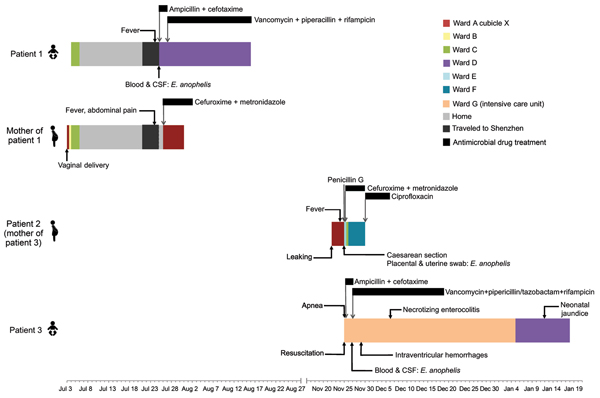Volume 21, Number 2—February 2015
Research
Evidence for Elizabethkingia anophelis Transmission from Mother to Infant, Hong Kong
Figure 1

Figure 1. Clinical course of illness in 3 patients infected with Elizabethkingia anophelis in whom sepsis developed and the mother of patient 1, who had culture-negative postpartum fever, Hong Kong, 2012. Locations where patients were treated at the hospital and times when they were home are noted.CSF, cerebrospinal fluid; leaking, leaking of amniotic fluid (membrane rupture).
1These authors contributed equally to this article.
Page created: January 20, 2015
Page updated: January 20, 2015
Page reviewed: January 20, 2015
The conclusions, findings, and opinions expressed by authors contributing to this journal do not necessarily reflect the official position of the U.S. Department of Health and Human Services, the Public Health Service, the Centers for Disease Control and Prevention, or the authors' affiliated institutions. Use of trade names is for identification only and does not imply endorsement by any of the groups named above.